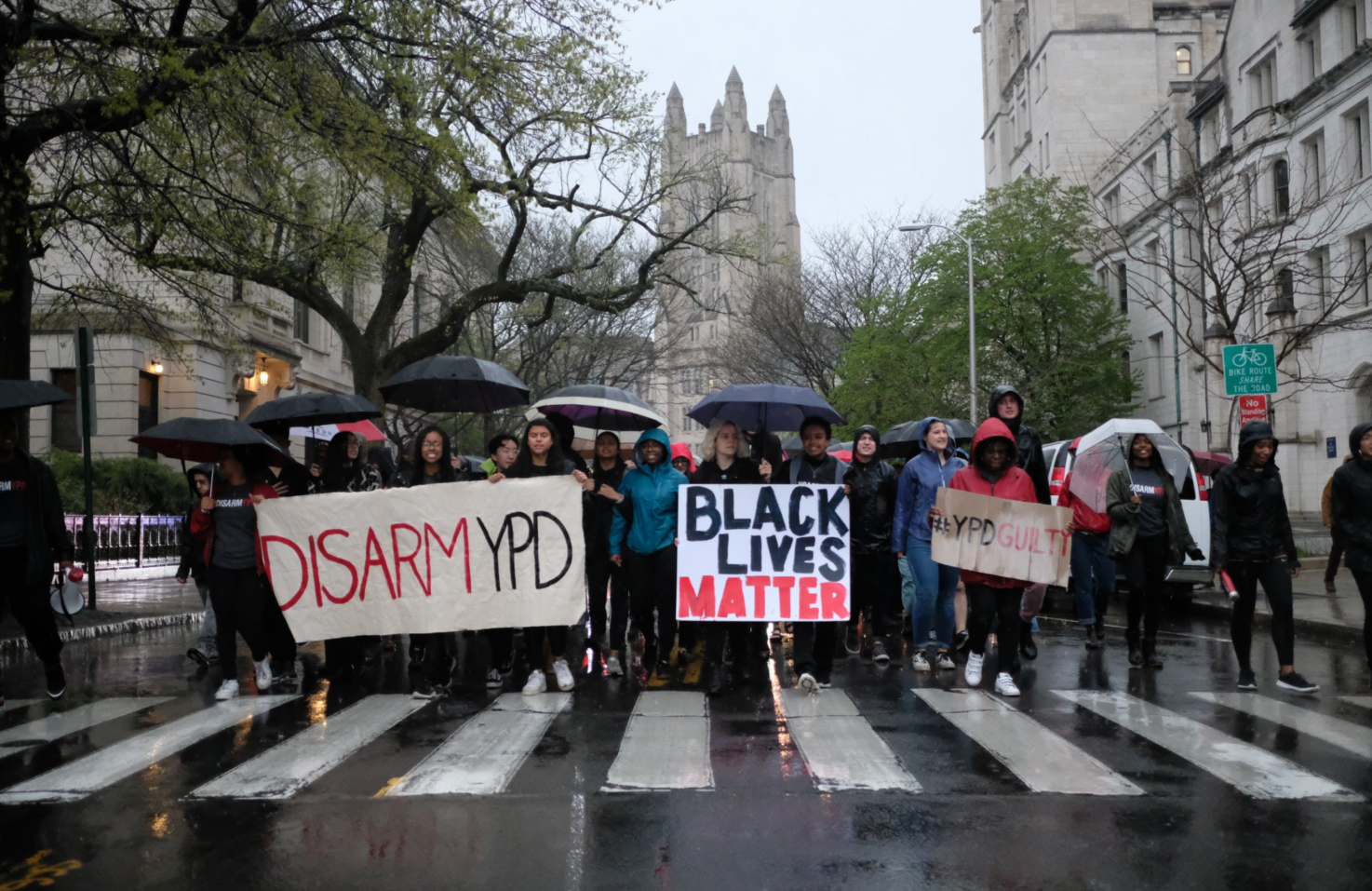
Yale Daily News
After a summer of reckoning for police departments around the country following the police murder of George Floyd, Black Students for Disarmament at Yale and the Yale Undergraduate Prison Project continue to advocate for defunding and dismantling the Yale Police Department.
The plea originated from a petition the two groups co-published last April, which stated that the YPD did not perform its necessary function — protecting Yale’s students. The petition cited instances of violence against Black community members, including when Tahj Blow ’16 was forced to address an accusation of theft at gunpoint in Sterling Memorial Library in January 2015, when Lolade Siyonbola GRD ’19 was questioned for napping in a dormitory common room in May 2018 and when Stephanie Washington and Paul Witherspoon were shot at by YPD and Hamden Police Department officers in April 2019. The petition has since garnered 8,866 signatures in just over a year.
“Yale University already has Yale Security patrolling campus, offering escorts and safe rides to students, and overseeing the blue phones and card reader systems,” the petition reads. “Very bluntly, why does the YPD exist? The organization has the same goals as Yale Security, the same power as the New Haven Police Department, but, most importantly, none of their accountability or oversight.”
The YPD, according to its website, works to protect Yale’s property while investigating crimes through its investigative services and analysis units.
Later in the summer, Yale University released a review of the YPD in June 2020. The report provided an analysis of the department conducted by 21CP Solutions, an external consulting firm that grew from former President Barack Obama’s Task Force on 21st Century Policing.
“The theme that most frequently emerged in 21CP’s listening sessions was the sense that policing on campus too often seems to happen to the community rather than with it,” read a statement co-authored by YPD Chief Ronnell Higgins, Vice President for Human Resources and Administration Janet Lindner, Senior Vice President Jack Callahan, and University President Peter Salovey. “To address this challenge successfully, we are reassessing and reshaping major aspects of policing at Yale.”
The reforms endorsed by the report included closer integration of the YPD, the New Haven Police Department, and Yale Security through enhanced communication and joint training exercises. The 21CP consulting firm also suggested that stakeholders coordinate to create a shared vision of Yale’s public security.
A differential response model was developed, which distinguishes requests for police service and matches safety responses to specific situations. For example, this model would have mental health professionals address calls for mental health issues that the police receive.
Additionally, the report advocated for various community-police interactions — such as hosting in-person discussion sessions, assigning officers to be fixed liaisons with cultural houses and residential colleges, implementing more comprehensive student and staff orientation programs and increasing communication with Yale and the New Haven community beyond Higgins’ Public Safety Alert emails.
Still, some students called for further actions than police reform. In November 2020, student organizers met with the Yale administration after the BSDY published an open letter to the University administration, outlining their demands and publishing a report called “A Pathway to Abolition.”
“I think the thing that we wanted to communicate the most is that there is a future that is realistic and feasible where the Yale Police Department isn’t a necessary part of Yale public safety,” Jaelen King ’22, president of the BSDY, said. “There are actual legitimate options present and available where Yale can defund or abolish its police department and campus is still safe and students actually live in close relationships between Yale and New Haven.”
The advocates proposed various initiatives to reimagine public safety at Yale, including a new emphasis on redirecting resources to mental health services on campus.
King told the News that though the administration was not receptive to the proposition of abolition at first, they “entertained” the proposal throughout the meeting.
Salovey told the News previously that although the administration was keen on reimagining “virtually everything” about the YPD’s model, abolition is not at the table. The administration brought up continued safety concerns, including paintball attacks on Yale students last fall.
This April, the Abolition Alliance at Yale — a coalition of University student groups — released a report on the YPD’s performance called “It’s Time for Abolition: An Analysis of the Yale Police Department’s Activity.” The AAY consists of the Yale Undergraduate Prison Project, Black Students for Disarmament at Yale, Concerned and Organized Graduate Students, the Black Law Students Association, Racial Capitalism and the Carceral State Working Group and the Endowment Justice Coalition.
The report mainly focused on the YPD’s crime logs — the percentage of reported crimes that have resulted in a charge or arrest — and the amount of missing or damaged assets that the department has been able to recover. AAY claimed that despite YPD’s ample funds, it rarely handles serious crimes that pose physical threat to individuals and often does not solve crimes. The group also argued that the YPD disproportionately targets Black and brown community members.
Throughout May, the AAY organized Abolition Month, in which organizations conducted rallies and sit-ins to inform the Yale community about abolition.
As one of the oldest college police forces, the Yale Police Department was originally established in 1894.







